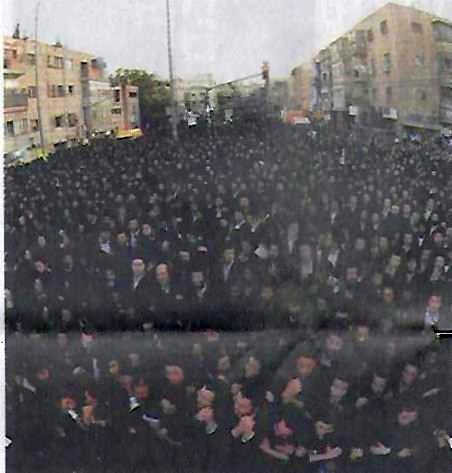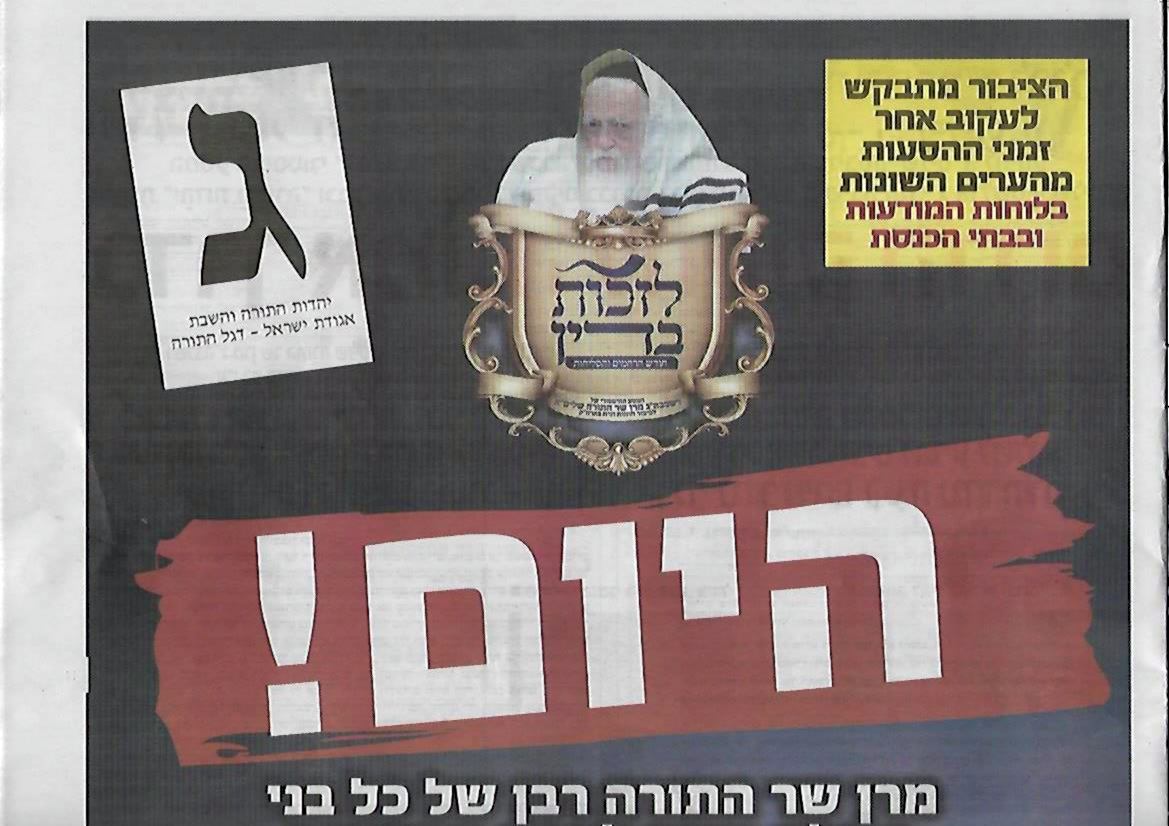Election Rally Held in Jerusalem

As of Thursday, the election results are substantially final, even if not yet officially final, and the balance of power is the same as it was before the elections. The Israeli electorate is deeply divided and does not give a decisive advantage to either side.
Both the Right and the Left blocs have 56 seats. Avigdor Lieberman's Yisrael Beiteinu party has the eight seats that could go to either side, though he has thrown his lot in with the deeply anti-religious and anti-Netanyahu side. Also, it is important to note that the so-called Left bloc counts the 12 Arab seats as part of itself, even though it is unlikely that anyone would or could form a government that relies on their support.
The current apparent results are: Blue-White - 33 seats, Likud - 32 seats, United Arab List - 12 seats, Lieberman's Yisrael Beiteinu - 8 seats.
Shas went up by one and has 9 seats. UTJ kept its 8 seats. The United Right Parties have 7 seats. Labor has 6 seats. The Democratic Camp (former Meretz) has only 5.
The main concern of the chareidi community is that the blatantly anti-religious politicians and parties, notably Avigdor Lieberman and Yair Lapid, not attain serious power over the religious life of the State. Some possible proposed combinations would allow this to happen. To this end, both chareidi parties, Shas and UTJ, have been very loyal to Netanyahu.
The Right bloc announced that they were forming a technical alliance to negotiate for a government together. This serves the interest of the chareidim, since its meaning (unless of course things change) is that we will be included in any government.





